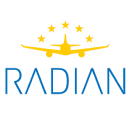

Horizon 2020 is the eighth phase of the Framework Programmes for Research and Technological Development (also called Framework Programmes; hence the project's alternative name of 'FP8'), funding programmes created by the European Union in order to support and encourage research in the European Research Area (ERA). It implements Europe 2020 and Innovation Union strategies. The programme runs from 2014–2020 and provides an estimated €80 billion of funding, an increase of 23 per cent on the previous phase.
The project became embroiled with the 2014 referendums held by Switzerland, which opted to impose a quota on immigration between that country and the EU. Switzerland, which maintains bilateral agreements with the EU, was intended to be a participant of Horizon 2020, but negotiations that would have ensured this were put on hold in the aftermath of the decision. Turkey joined this funding program. This funding programme also includes Israel, which joined after protracted negotiations about whether funding could be directed to projects beyond the Green Line; eventually the two parties agreed to disagree, and Israel published its views in an Appendix to the official documents. Open access is an underlying principle of Horizon 2020, intended to improve research results, create greater efficiency, improve transparency and accelerate innovation.
The programme consists of three main research areas that are called "pillars":
These technologies all have European technology platforms (ETP; fora for research communities to meet) with their respective strategic research agendas (SRA). Some technologies have long term funding instruments, such as joint technology initiatives (JTI). Some technologies are labelled key enabling technologies (KET).
This pillar contains special efforts to SME funding and gives also risk financing (2.8 billion euro) e.g. through loans of the European Investment Bank.
This pillar also funds themes names as "Science with and for society" (€0.5 billion) and "Spreading excellence and widening participation" (€0.8 billion).
The structure follows the previous framework programme (FP7, 2007-2013) to the level of the sub-programmes under the pillars. In the industrial pillar the goal is to find ways to modernize European industries that have suffered from a fragmented European market. In societal challenges the goal is implementation of solutions, less on technology development.
For more information please visit this link.

BEST is SESAR Exploratory Research project focusing on a new way of data handling. By creating new data classification methodologies it will enable the application of System Wide Information Management (SWIM) one of the main results of SESAR. BEST will determine how semantic technologies can be used... Read more...

Aviation is a vital industrial sector of Europe's society and economy. For several historical reasons the economic activities in this field are unevenly distributed across Europe. Statistics show that also the R&D effort, which always comes along with the aviation, mirrors this allocation. O... Read more...